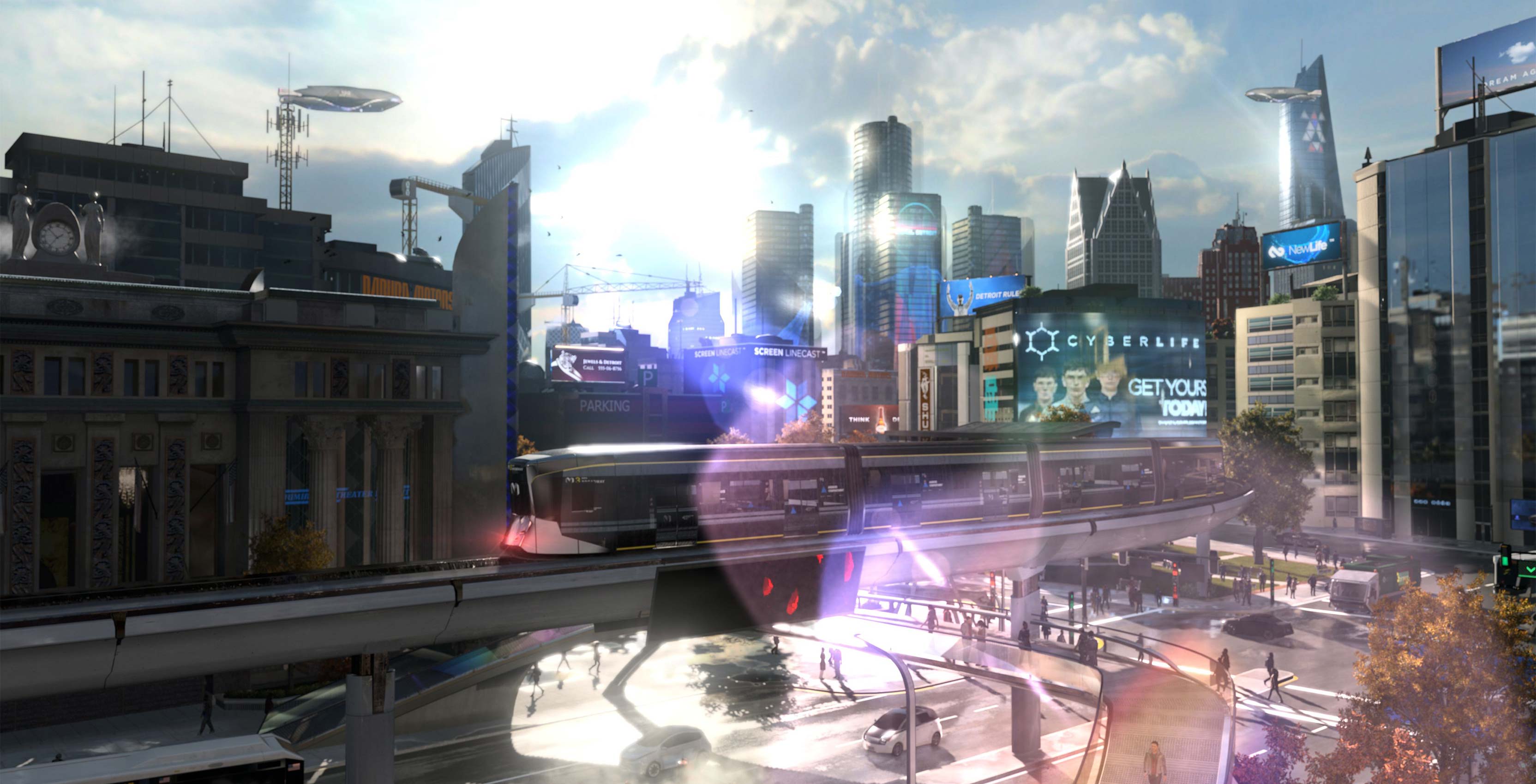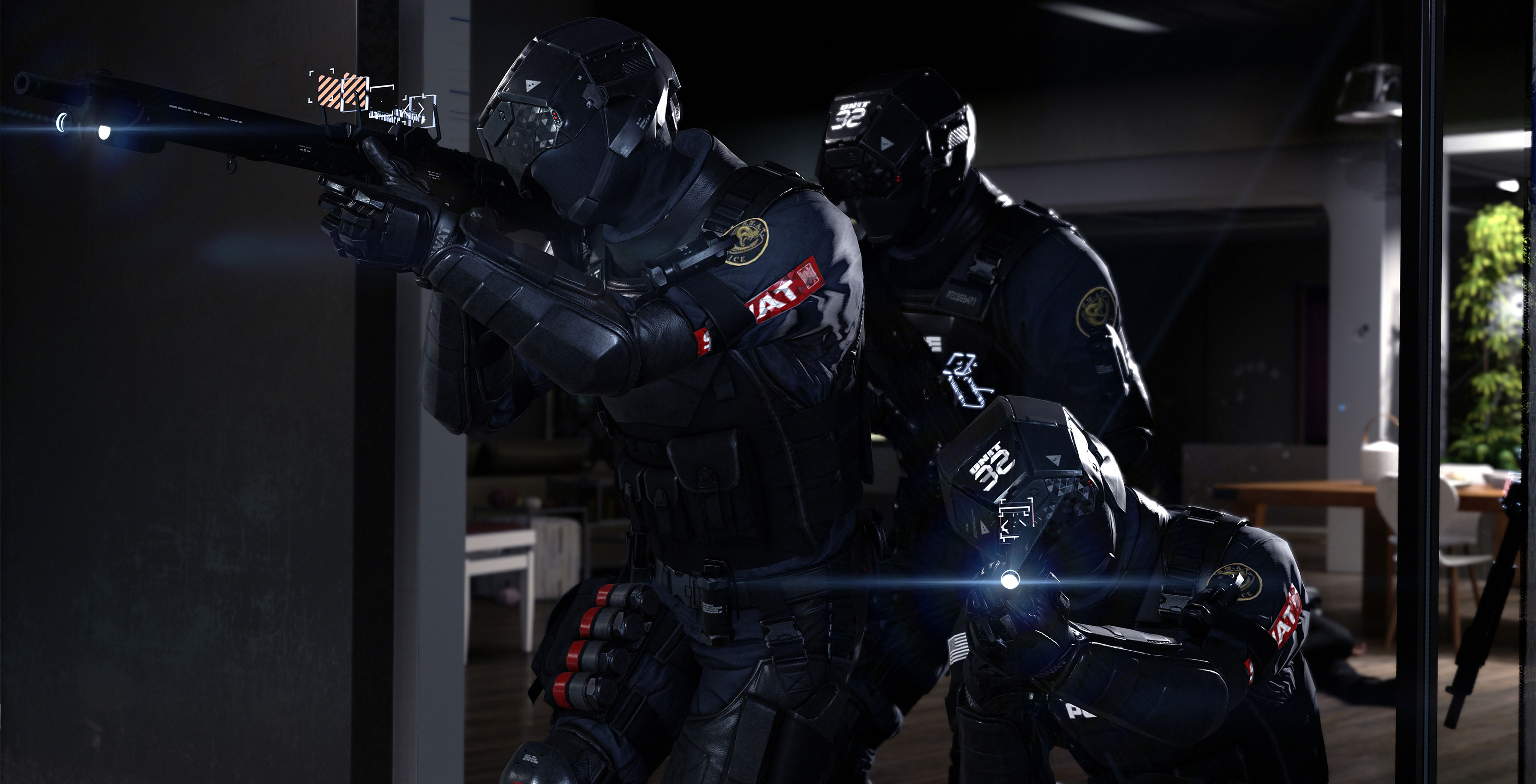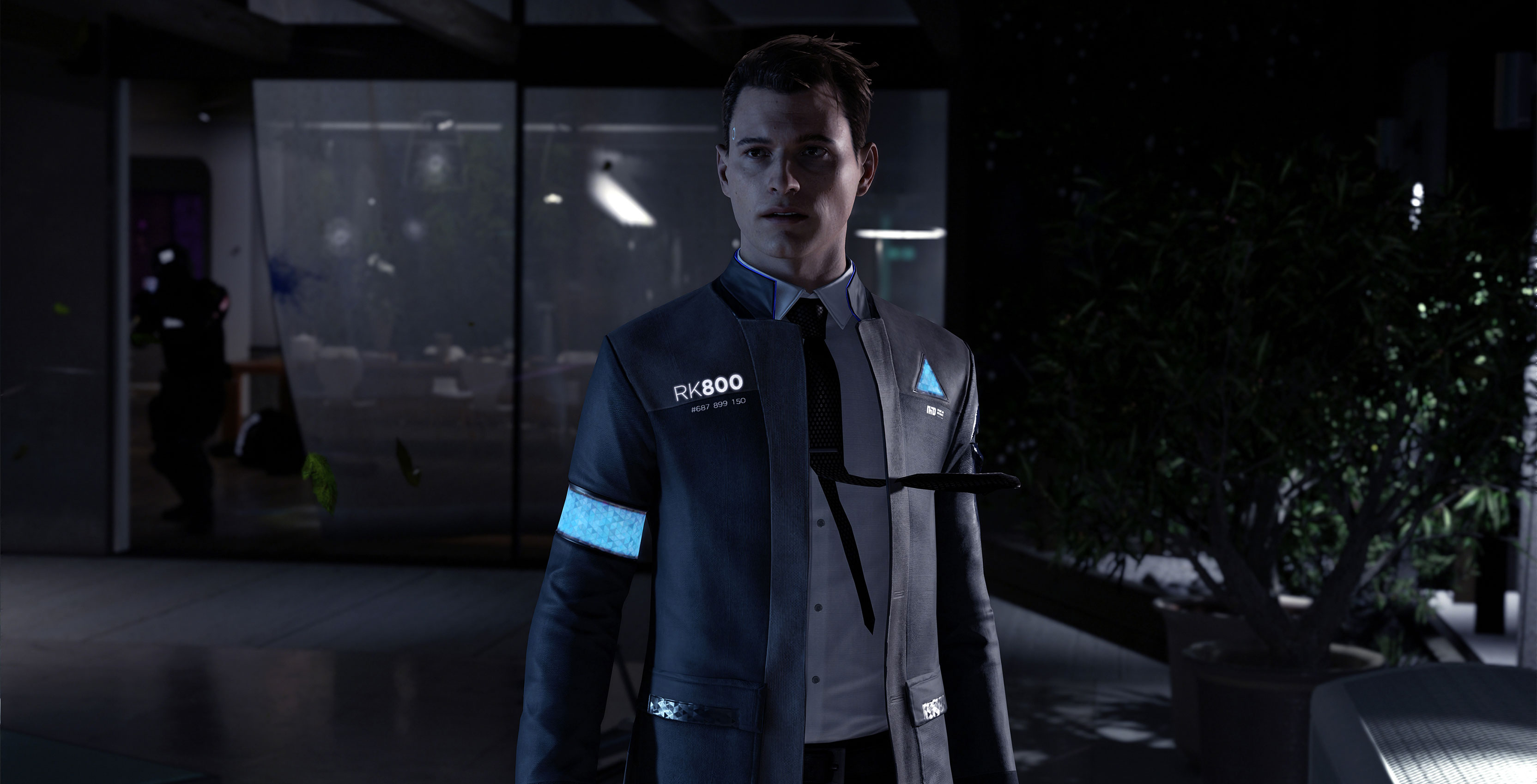
Messy human emotions like fear, sadness and rage have no place in the robotic hearts and minds of androids.
But in the upcoming PlayStation 4 game Detroit: Become Human, something strange is happening to these synthetic people, who are as commonplace in the year 2038 as smartphones and Amazon Alexas are today.
Case in point: I’m an android. I’m mad as hell. And I really want to kill a man named Todd.
Releasing May 25th exclusively for Sony’s PlayStation 4, Detroit: Become Human is the latest cinematic action-adventure game from Paris-based Quantic Dream, the studio behind 2010’s Heavy Rain and 2013’s Beyond: Two Souls.
What started as a tech demo unveiled at the 2012 Game Developers Conference, Detroit: Become Human has become Quantic Dream’s most ambitious project to date, with more than 500 characters — including a few played by recognizable Hollywood talent – and a 2,000-page script, written by game director and studio founder David Cage.
It also has a staggering number of variables that can radically alter the direction of the game’s storyline, depending on what players decide to do at any given moment. Like, say, killing a very bad guy named Todd.
“Detroit is by far the most branching game we’ve ever made,” Cage said in an interview last week in Los Angeles, where he hosted an extensive hands-on preview of the game for a small group of press.
“We made some difficult decisions to develop things that maybe 10 percent of the people will see,” Cage said. “Which usually you avoid doing in video games, because it’s too expensive and it’s time-consuming.”
Like Quantic Dream’s previous titles, the gameplay in Detroit: Become Human involves exploring detailed environments — in this case, a sprawling, futuristic Detroit — and using the PlayStation controller’s sticks, buttons and touchpad in ways that loosely mimic the actions your character performs on screen.
Right now I’m playing as Kara, one of the three androids at the centre of Detroit: Become Human’s twisty tale about synthetic humanoids suddenly developing emotions and free will.
As Kara, I’m owned by Todd, an abusive, drug-addicted single father who terrorizes his young daughter, Alice. While cleaning up Todd’s mess in the family’s ramshackle home — using the controller to mimic picking up trash, washing dishes, gathering up laundry and other menial tasks — I come across a handgun in a drawer in Todd’s bedroom. Mental note taken.
During dinner, Todd’s violent, drug-fueled outburst sends a terrified Alice fleeing upstairs. I violate my programming — accomplished by hammering on controller buttons until a virtual wall representing Kara’s “mind palace” is shattered — then make a beeline for the gun in the drawer. After a fierce struggle played out by responding to button and joystick prompts that rapidly flash on the screen, the gun goes off, and Todd is dead.
Androids aren’t supposed to feel happy. But I’m very, very happy.
Kara’s drama runs parallel to the stories of the other two characters: Connor, a Detroit police forensic detective who butts heads with his hard-drinking lieutenant (the crusty older cop is played The Shawshank Redemption’s Clancy Brown), and a caregiver named Markus, who looks after his kindly, wheelchair-bound owner (portrayed by Aliens’ Lance Henriksen.)
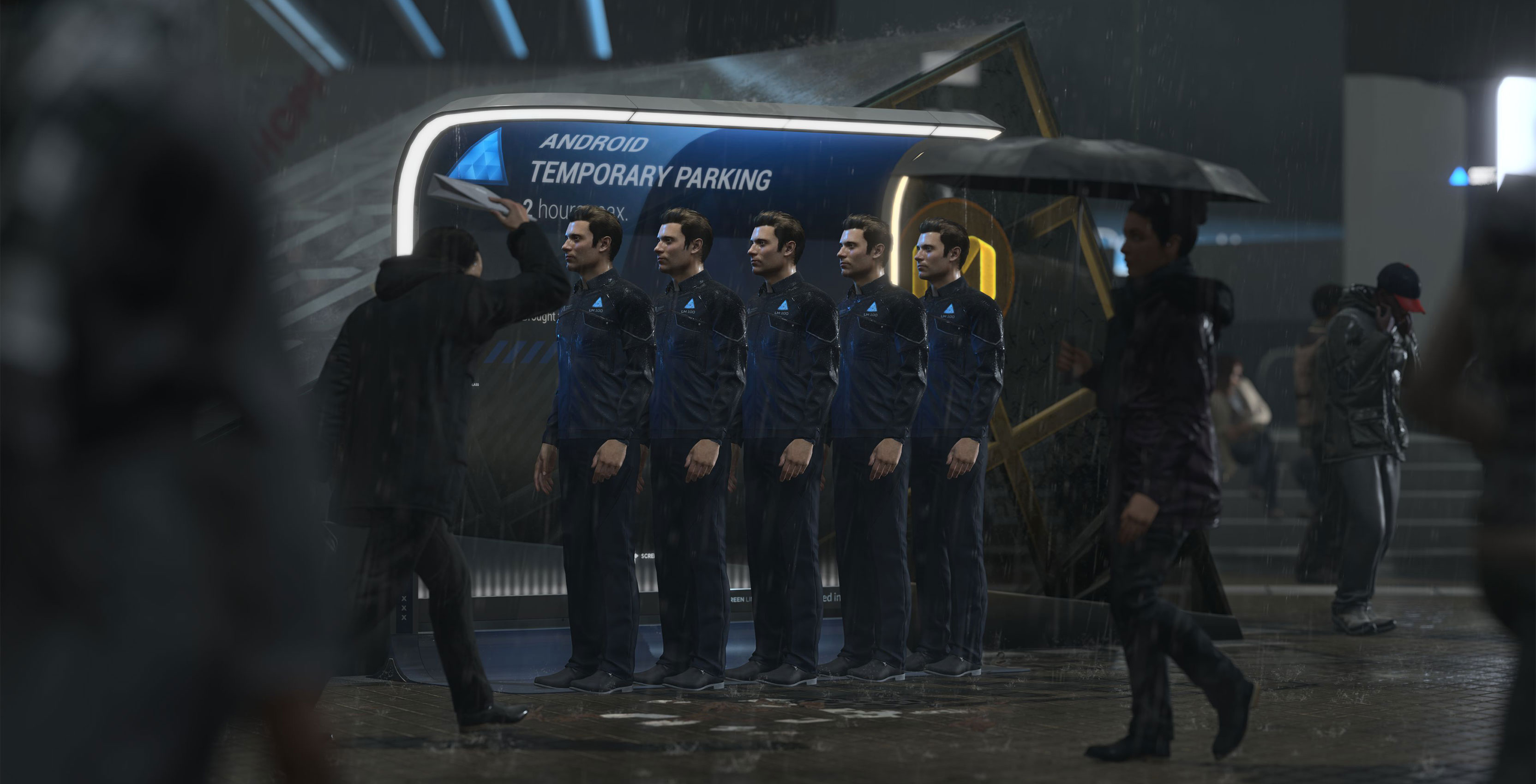
Later, playing as Connor, I investigate a grisly crime scene in a dilapidated house, looking for clues that will tell me who savagely stabbed the homeowner to death. Scrubbing back and forth through holographic recreations of the crime, I catch the culprit – a rogue android that’s been praying to someone, or something, called RA9 — hiding in the attic.
At the police precinct where the malfunctioning synth is taken for questioning, I carefully select my interrogation options, going back and forth between stern accusations and sympathetic kindness, until he finally cracks and confesses.
But at the real-world game demo station next to me at the Los Angeles press event, my colleague makes more aggressive choices with his character’s interrogation, sending the deviant android into a self-destructive fit. The rogue robot ends up grabbing a cop’s gun and shooting Connor dead.
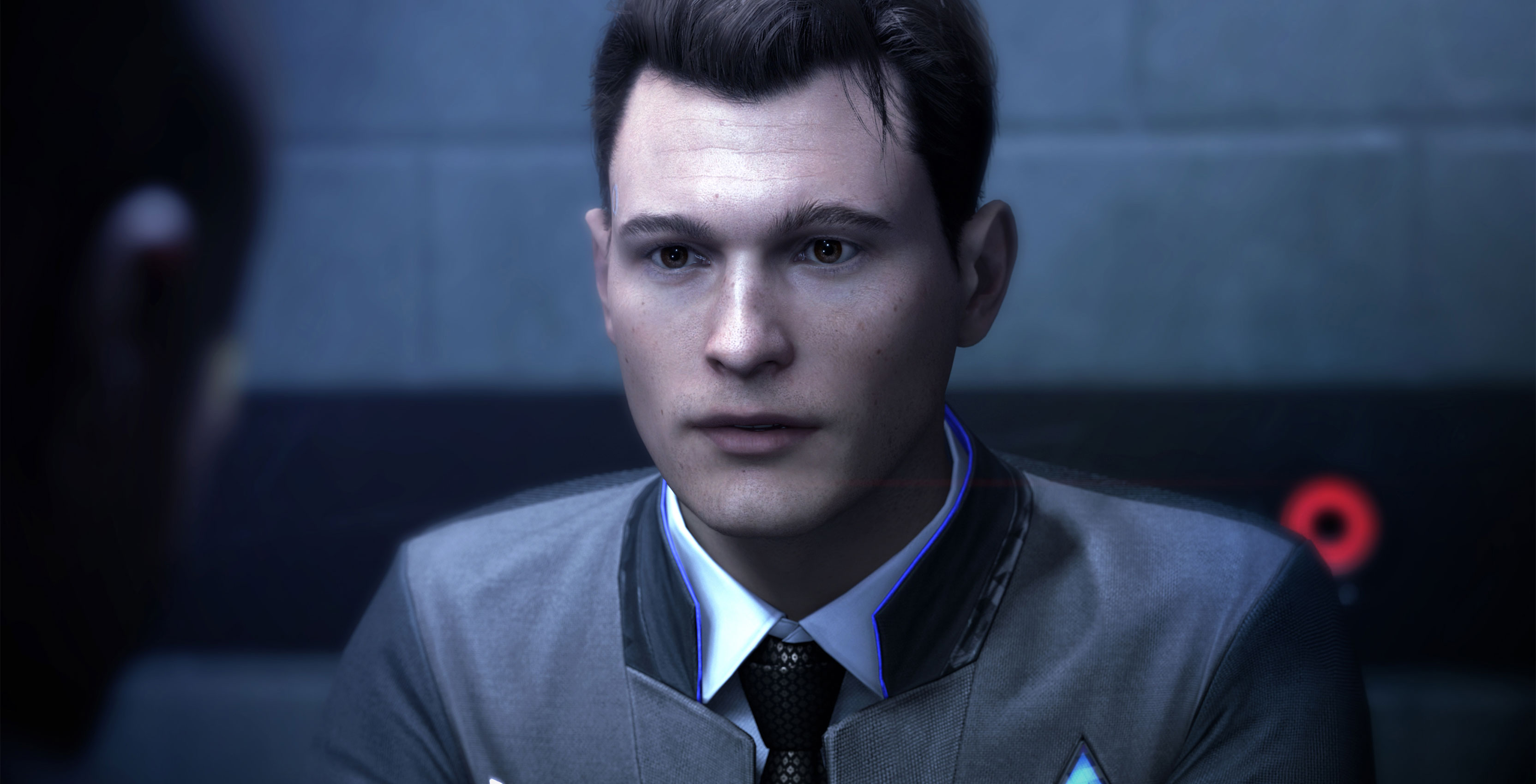
Even though there are literally hours of additional scenes in the game that revolve around Connor, his role in my colleague’s story is over, less than 90 minutes in.
“All three characters can die,” said Cage. “The message for us was you need to pay attention, you need to be careful about your characters, because if you’re not serious about taking care of them, you can lose them.”
In that respect, Detroit: Become Human is like 2010’s groundbreaking Heavy Rain. This time, though, Cage is letting players look under the hood, allowing them to see the game’s branching story possibilities and get an idea of what they might have missed.
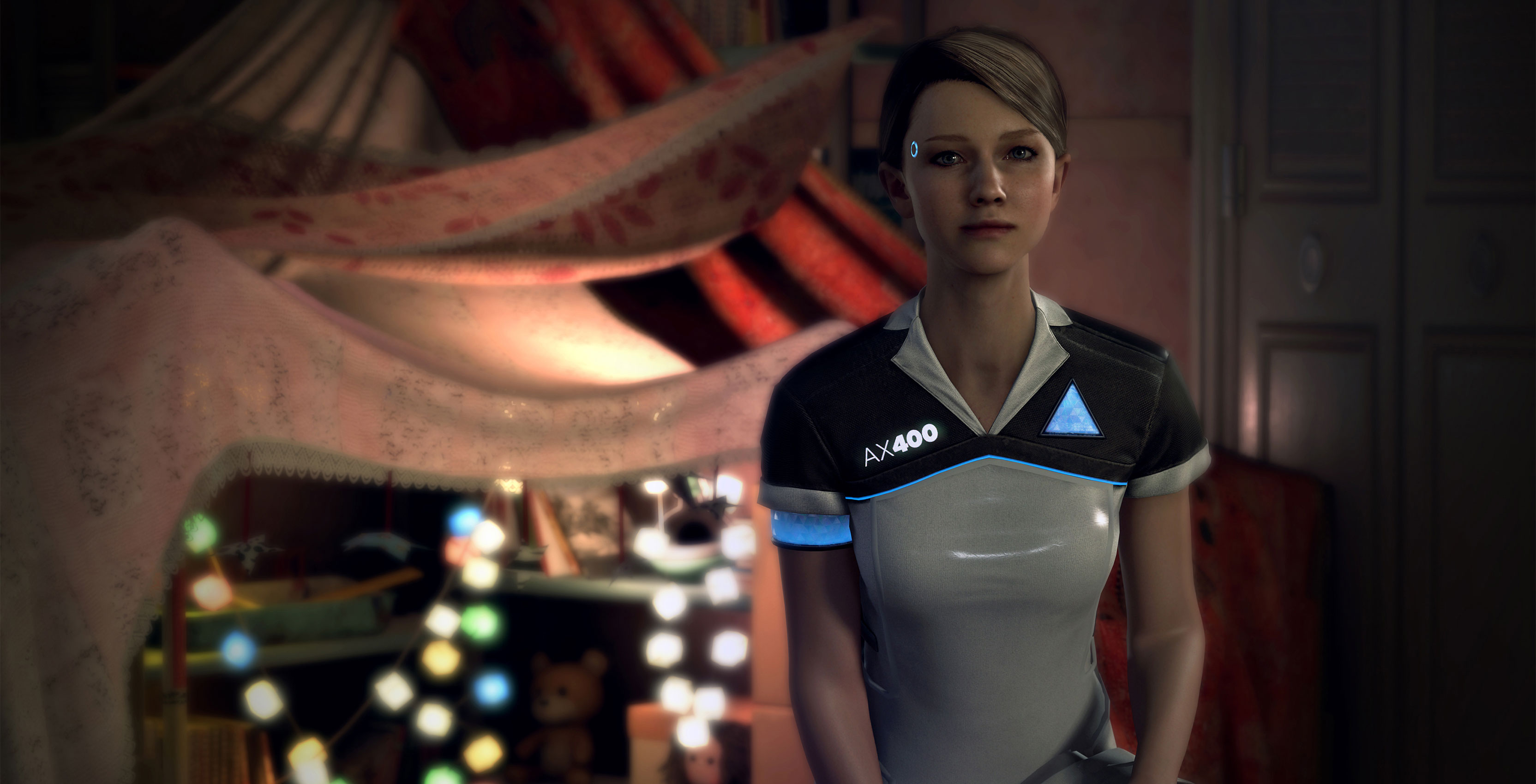
Each chapter ends with a massive flowchart displayed on-screen, highlighting the path the player took through that sequence, and showing the dozens of other decision points and outcomes that might have been. These remain greyed out and locked until the player discovers them in another playthrough, with more than 1,000 story variations in the game’s final act alone.
“This is something we embraced,” Cage said. “We wanted to create something that would be very different from one play to another, because we believe that’s where the pleasure of the experience will come from.”
Take Kara and the gun, for instance. If I hadn’t found the weapon while cleaning the house, I wouldn’t have been able to use it to deal with Todd, and the options open to me in that confrontation would have been different.
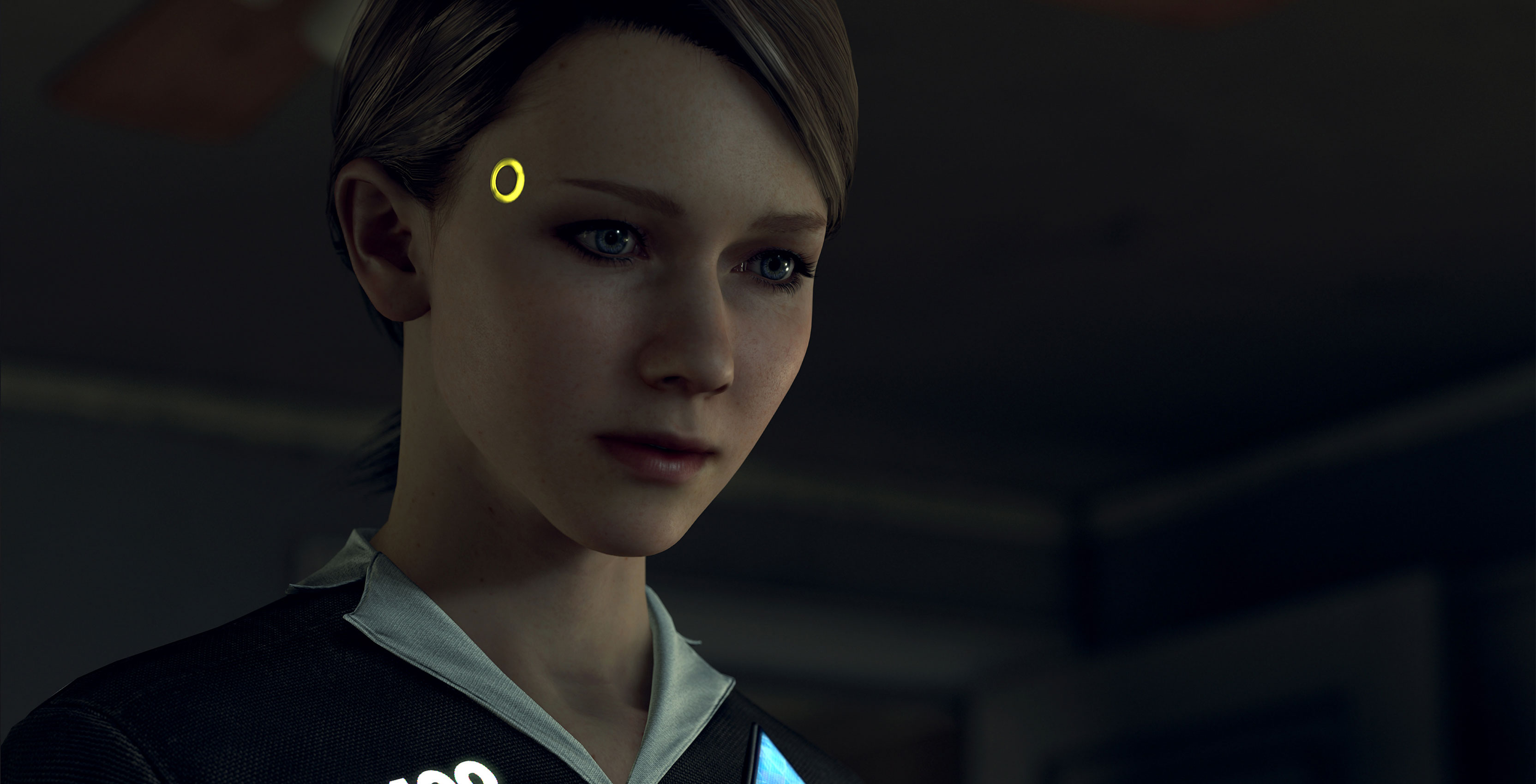
In a later chapter, when Kara and Alice are on the run and looking for shelter for the night, I’m given the option of using the gun to rob a convenience store to get money for a motel.
Instead, I choose to shoplift a pair of wirecutters — it feels like the lesser of two evils — and use them to break into a nearby abandoned house. The gun will almost certainly factor into later scenes, but those choices will be closed off to players who are a little less thorough in Kara’s first chapter.
Detroit: Become Human is working with some pretty deep themes for a video game. The androids, which only cost a few thousand dollars to buy, are seen by many in futuristic Detroit as second-class citizens, or even slaves. They’re forced to ride at the back of the bus, subject to physical and verbal abuse and accused of stealing jobs from humans. The parallels to present-day racism, anti-immigration rhetoric and divisive political views are very deliberate.
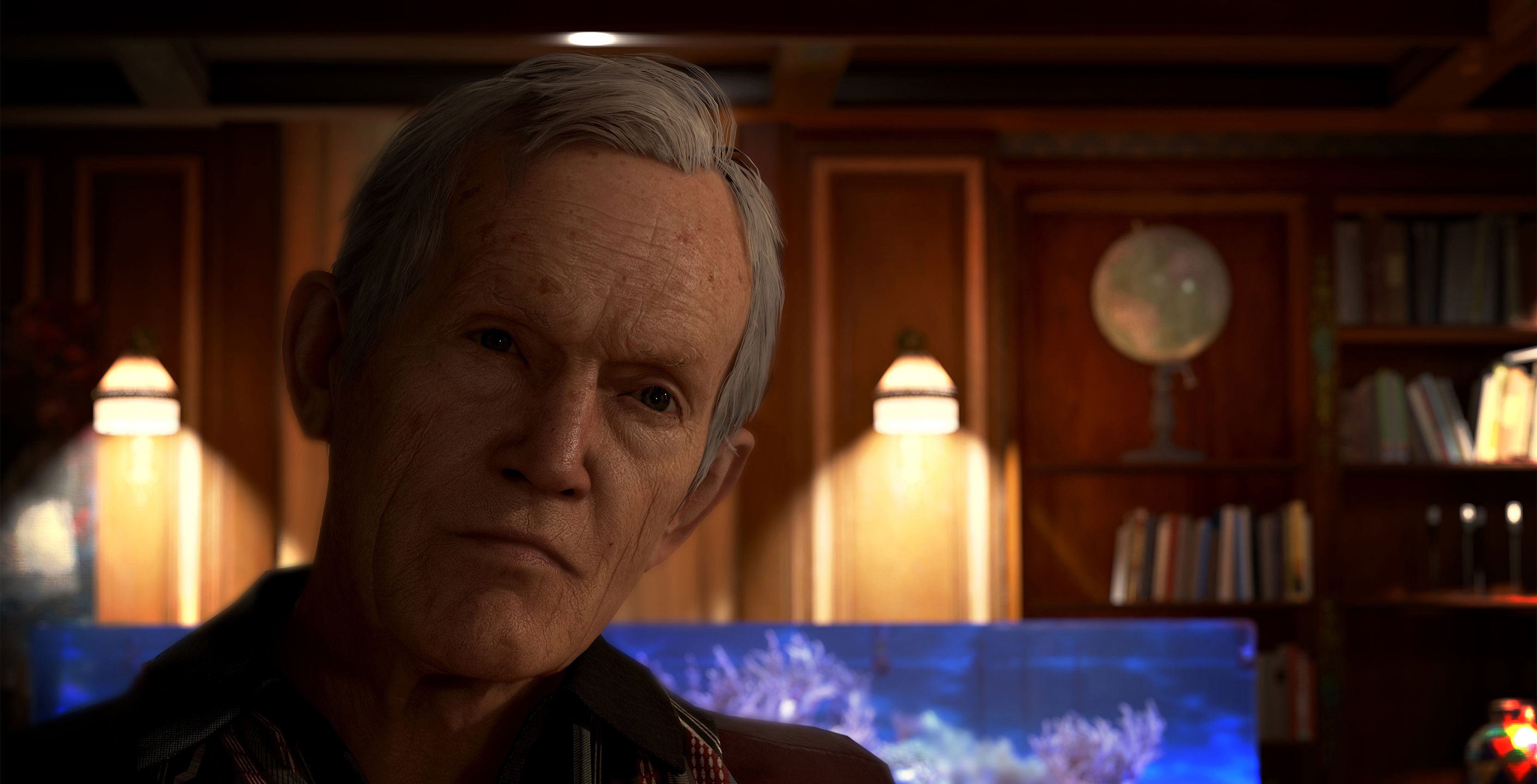
The game also has some timely warnings about the dangers of artificial intelligence. If we worry now about Facebook knowing too much about our likes and dislikes, imagine having a set of eyes and ears in our homes, potentially recording everything we do and reporting back to some faceless corporation.
“This is already happening now,” said Cage. “I don’t know if this is a future that we want, but this is a future that may happen if we’re not careful.”
Running on a PlayStation 4 Pro connected to a 4K HDR TV, my demo of Detroit: Become Human looks spectacular. But Quantic Dream has said the game will run at the same 30 fps framerate with HDR support on standard PS4s as well, albeit at 1080p resolution, rather than 2160p checkerboard resolution on the Pro.
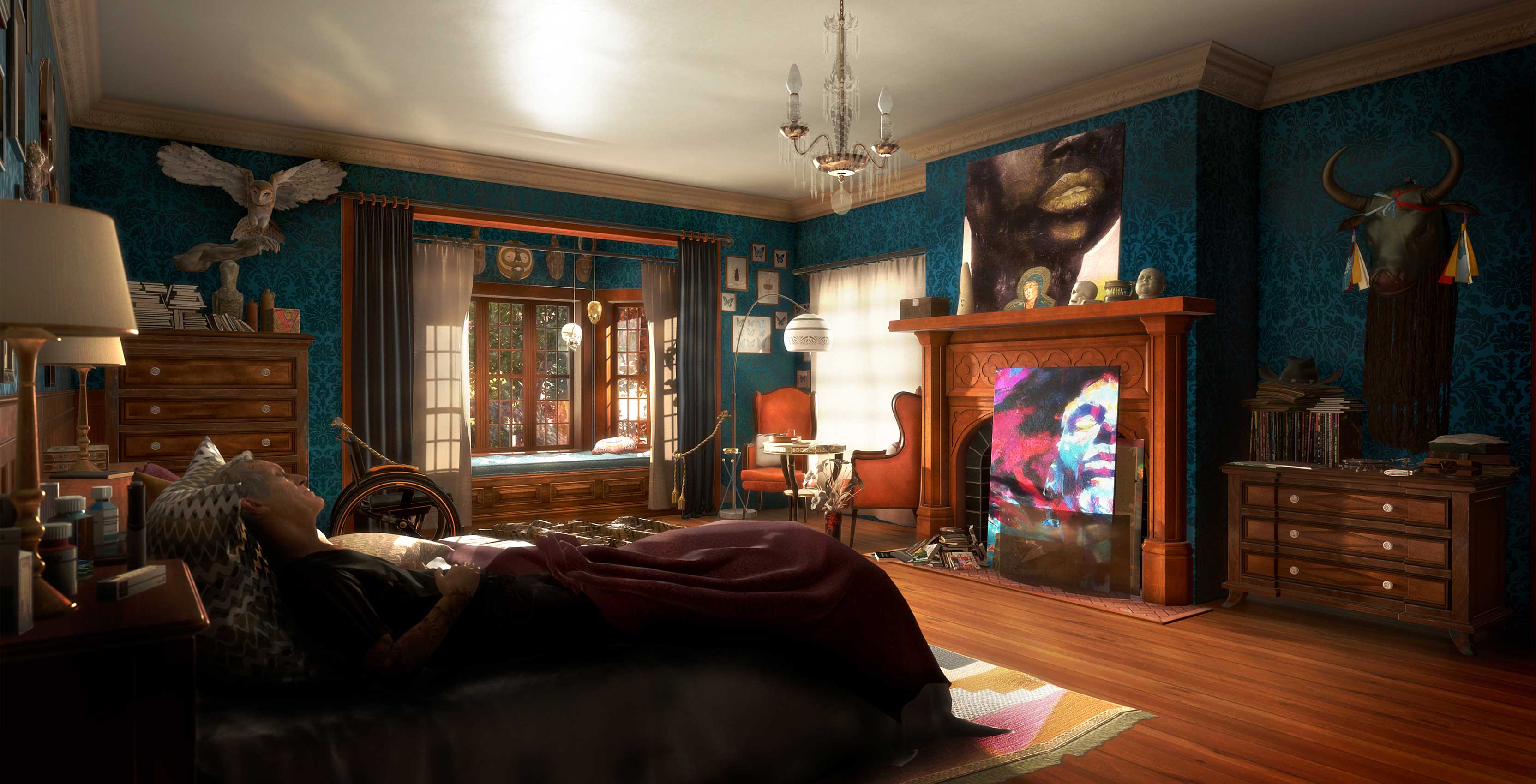
It marks the third time in a row that Quantic Dream has developed a game exclusively for the PlayStation platform, but Cage says it’s not just the hardware that keeps them coming back to Sony.
“What we appreciate so much about them as a publisher is that they let us make games that maybe other publishers wouldn’t,” said Cage.
“I go to them and say, ‘I’m going to make a game called Detroit: Become Human, and it’s going to be about segregation, racism… socially relevant.’ Most publishers would just run away.”
MobileSyrup may earn a commission from purchases made via our links, which helps fund the journalism we provide free on our website. These links do not influence our editorial content. Support us here.

